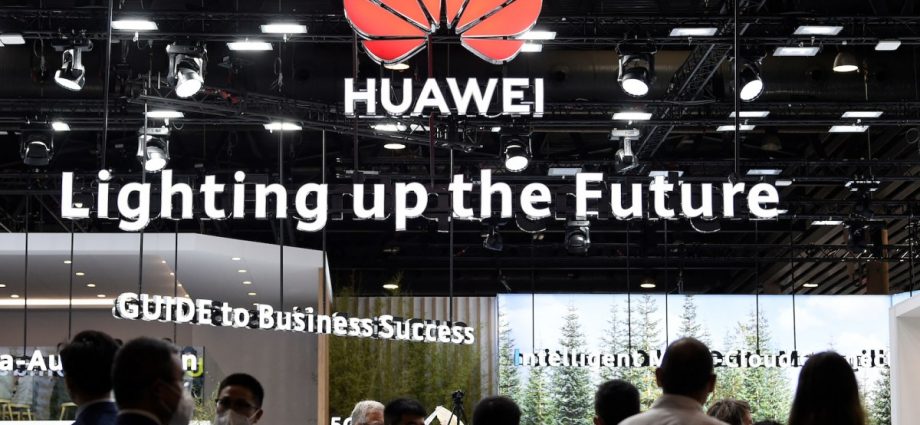
Last year at this time, China tech giant Huawei revealed its 2021 financial results, posting a 29% drop in overall revenues, but with a surprisingly robust surge of nearly 76% in year-on-year profits, suggesting that it had, if only temporarily, found a way to innovate around US sanctions.
Last week, Huawei released its 2022 financial results, showing a complete reversal in its financial performance, with a very modest, but under the circumstances still impressive, 0.9% increase in total revenues, but with a staggering drop in profits and operating cash flow of just under 70%.
These financial results appear to underscore the concerns expressed in the internal memo written by Huawei founder Ren Zhengfei that was leaked in August last year indicating that due to the US chip ban and general economic headwinds, the company was in “survival” mode.
However, at the press conference announcing the results, Huawei’s chief financial officer and new rotating chairwoman, Meng Wanzhou, repeatedly and resolutely expressed “confidence,” a sentiment that was echoed by other executives.
The company appears to have adopted, at all levels of management, a realistic attitude toward the ongoing sanctions imposed by the US on the company – and last autumn extended to the entire Chinese semiconductor industry – and are resigned to just getting on with business as best they can without extraneous rancor.
For example, when asked when Huawei would re-release a 5G (fifth-generation) mobile handset, outgoing rotating chairman Eric Xu smiled wryly and simply said, “You’ll have to ask the US Commerce Department,” eliciting a laugh from the assembled media.
Another executive privately noted that given that no reversal of the sanctions is anticipated any time soon, if ever, the company simply intends to redouble its efforts in the areas that are not impacted by the sanctions, taking advantage of the company’s massive investments in research and development, which hit a new high in 2022 of more than 160 billion yuan, representing more than 25% of total revenues.
Huawei has consistently ranked in the top five in global R&D investment over the last several years, besting top tech leaders such as Intel and Apple.
Many of these investments in R&D focus on potential new growth areas such as intelligent automotive solutions, smart mining and ports operations systems, cloud computing and consumer products such as health and fitness wearables, all of which are competitive businesses that may take a few to several years to deliver results.
Facing reality
Huawei officials also try to put a happy face on declining profits by noting that many of these business lines tend to feature lower profit margins in any event given the competitive landscape.
Huawei’s confidence notwithstanding the continuing sanctions hurdles appears to have been further bolstered by the recent announcement of its breakthrough in electronic design automation (EDA) tools for chips produced at and above 14-nanometer technology in cooperation with various partners.
At the same time, company officials are very much aware that that this is only one step in China’s long road to semiconductor sovereignty, and that there are no shortcuts.
Meng Wanzhou’s assumption of the rotating chair is another tacit admission that there’s no off-ramp from the sanctions escalator.
In the latter part of 2021, there was some thought that Huawei could still negotiate its way out of the chip ban by following the ZTE script. This likely would have entailed the imposition of a massive fine, the appointment of an independent compliance monitor, and the reshuffling of Huawei management.
That third move presumably would have included the forced resignation of Meng, who may have been seen by some as tainted by her prior indictment and arrest, even though the terms of her now-expired deferred prosecution agreement (DPA) contained no substantive admission of wrongdoing as the US Department of Justice’s case against her fell apart.
But with the extension of the US chip ban to the entire China semiconductor supply chain, the ZTE template is clearly off the table, so she has been able to resume her role as company CFO and take her turn as rotating chairwoman.
At the Huawei press event for the release of the 2022 financial results, a reporter asked Meng whether she was restricted in terms of travel as a result of her legal issues in the US. She calmly, and correctly, noted that under the terms of the DPA, the case had been dismissed at the end of last year, and that she, as would be the case for all other Huawei management personnel, would travel as necessary to support the business.
The irony is that this question was posed by a reporter for Reuters, which published the first reports about alleged sanctions breaches by Huawei in late December 2012 and January 2013 that led to the chain of events resulting in her eventual indictment, arrest and detention in Canada.
But from her composed and matter-of-fact response, it appeared that this was just more water under a very high bridge, and that none of this would distract her or Huawei from their resolute pursuit of a way forward.

